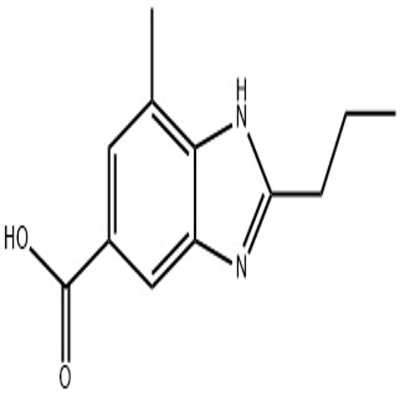-
Categories
-
Pharmaceutical Intermediates
-
Active Pharmaceutical Ingredients
-
Food Additives
- Industrial Coatings
- Agrochemicals
- Dyes and Pigments
- Surfactant
- Flavors and Fragrances
- Chemical Reagents
- Catalyst and Auxiliary
- Natural Products
- Inorganic Chemistry
-
Organic Chemistry
-
Biochemical Engineering
- Analytical Chemistry
-
Cosmetic Ingredient
- Water Treatment Chemical
-
Pharmaceutical Intermediates
Promotion
ECHEMI Mall
Wholesale
Weekly Price
Exhibition
News
-
Trade Service
Isoxazolo[5,4-c]pyridin-3-amine, also known as IPA, is a key intermediate in the synthesis of several important pharmaceuticals, agrochemicals, and other chemical products.
The synthesis of IPA can be achieved through various methods, including synthetic routes.
In this article, we will discuss some of the synthetic routes used in the industrial production of IPA.
One of the most commonly used methods for the synthesis of IPA involves the reaction of 4-nitrophenyl chloride with sodium azide in the presence of a solvent such as DMF or DMA.
The reaction leads to the formation of a diazo compound, which is then decomposed in a base, such as sodium hydroxide, to yield IPA.
Another synthetic route to IPA involves the reaction of 4-chloro-3-nitroaniline with sodium azide in a solvent such as ethylene glycol.
The reaction product is then hydrolyzed in an acidic medium, such as hydrochloric acid, to yield IPA.
In another synthetic route, IPA can be synthesized by reducing the nitro group of 4-nitro-3-pyridinecarboxaldehyde with a reducing agent, such as lithium aluminum hydride, in the presence of a solvent such as ether or benzene.
The resulting product is then treated with a base, such as sodium hydroxide, to yield IPA.
IPA can also be synthesized through a sequence of reactions involving the condensation of 4-aminocarboxylic acids with aromatic aldehydes in the presence of a condensing agent, such as dicyclohexylcarbodiimide, and a solvent such as DMF.
The resulting intermediate can then be reduced with a reducing agent, such as sodium borohydride, to yield IPA.
In addition to these synthetic routes, IPA can also be synthesized through the reaction of 3-pyridinecarboxaldehyde with ammonia in the presence of a solvent such as DMF, followed by reduction with a reducing agent, such as lithium aluminum hydride, to yield IPA.
The selection of a particular synthetic route for the production of IPA depends on several factors, including the cost and availability of the starting materials, the reaction conditions, and the desired yield and purity of the product.
In general, the synthetic routes described above have been found to be efficient and cost-effective for the industrial production of IPA.
Overall, IPA is an important intermediate in the synthesis of many pharmaceuticals and agrochemicals, and its synthesis has been extensively studied.
The synthetic routes described above offer effective ways of producing IPA on an industrial scale.
The choice of a particular route will depend on various factors, including cost, yield, and purity requirements.
As the demand for IPA continues to grow, researchers will likely continue to explore new and more efficient methods for its synthesis.





![benzyl N-{2-[4-(4,4,5,5-tetramethyl-1,3,2-dioxaborolan-2-yl)phenyl]ethyl}carbamate](https://file.echemi.com/fileManage/upload/goodpicture/20210823/m20210823171124543.jpg)

